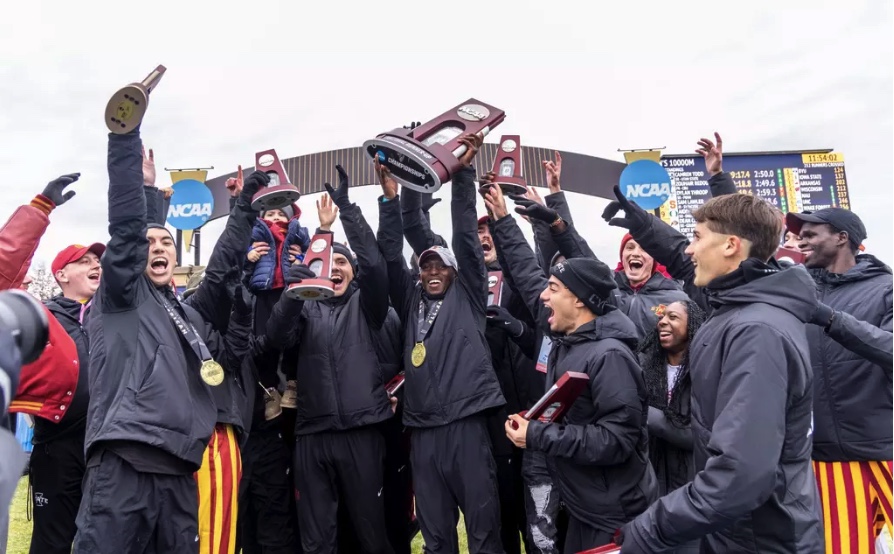The accidental student
January 23, 2001
Language makes even the simplest tasks a chore now that I’m in Spain. Trying on a pair of pants, counting change and ordering a drink were just the beginning of my communication trauma. But the culmination of my linguistic difficulties came when I went to get a hair cut.Just a tip — if your hair is even slightly shaggy before you’re going on an extended stay in a foreign country where the people don’t speak your native language, take care of it before you go. Almost five years of Spanish language classes were not enough preparation for me. I tried to go as long as I could before breaking down and going to the hair dresser’s. Finally it got to the point where my hair looked like a giant loofah sponge on my head. I had no choice.A professor with good hair suggested a peluqueria for me, and I went after class to make an appointment.I guess they weren’t too busy because I was suddenly draped with a robe after I made my carefully prepared request.After the first question the receptionist asked me, I stared at her blankly until she said “your name” in English. To add to my stupidity, I tried to spell my name in English letters. I must be the prototype of the dumb American.Fortunately, I had a photo of how I wanted my hair cut. With many gestures, I indicated how I wanted the back of my hair done. The woman said something that sounded like stairs, which I took the liberty of translating into graduated layers. I nodded in agreement, trying to fake it. That probably wasn’t the best idea.Luckily, the cut turned out roughly the way I had hoped. Yet the only thing I actually understood anyone saying to me the entire time was “Hasta luego,” or see you later. This is typical of most interactions I have with Spanish people.Most tasks can be accomplished with a lot of pointing and nodding. Yet I’ve reached the point where I’m tired of speaking in two-word phrases when I’m in public.To prepare us for interacting in Spain, the students at my school and I are having a month of intensive language class. This means we have six hours of class three days a week, and four hours on two other days.Even though I learn an incredible amount every day, sometimes the only thing that gets me through the day is the smell of the white board markers in an unventilated classroom.My conversation class is the most useful I’ve ever taken. Each day we cover a different area of practical situations, like eating in a restaurant, buying clothes or traveling.We can also ask about things we’ve heard people say on the street. In other words, we tell our professor all about the dumb things we’ve accidentally said. A traditional Spanish snack that’s given us Americans trouble is chocolate con churros, which is a cup of rich hot chocolate served with lightly fried, long thin pieces of bread.First my roommate Chrissy amused my professor by saying she wanted to eat chocolate con churros. In Spanish, saying that has sexual connotations we’d rather avoid. Instead, we’re supposed to say we’d like to try chocolate con churros.Another student accidentally asked for drugs outside a store that sells chocolate con churros. The men outside the door asked her if she wanted chocolate.They brought out a brown disk of weed. She learned firsthand that “a chocolate” means hot chocolate and “chocolate” is slang for marijuana.Even though our mistakes give us something good to talk about to our friends and teachers, it’s frustrating to feel stupid all the time. Not only that, but we attract a lot of attention — we’re now the people in the store that others stare at because we’re speaking either a foreign language or really, really bad Spanish.Sometimes I’m relieved when the Spaniard I’m taking to knows English, and I don’t have to spend 20 minutes trying to ask where the bathrooms are. Sure, it’s easier to revert to English at any given time, especially when it takes so long to communicate and I miss half of what’s being said in Spanish.Yet as much as I feel like a combination of the main attraction at a freak show and the village idiot, my time in Spain is worth the bouts of embarrassment. Although I’ve studied Spanish for five years in the United States, nothing can compare to learning the ins and outs of a language where it is spoken by a majority of the population.And no, a scary hair cut or accidentally asking for drugs is not going to bring me any big revelations about the Spanish heart and mind. But I take the risk of looking incredibly foolish because it is a small step on my way to becoming fluent.
Amie Van Overmeer is a senior in journalism and mass communication from Rock Rapids.






